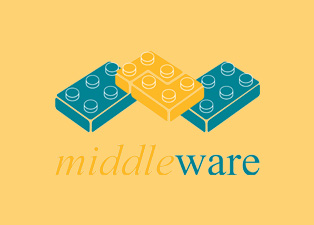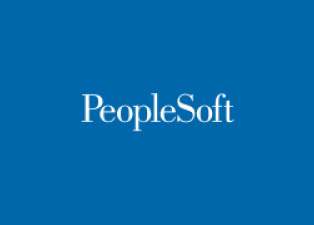WCF Online Training
WCF Online Training

WCF Online Training Course Content :
Introducing Windows Communication Foundation
- What Is Windows Communication Foundation?
- The Early Days of Personal Computer Applications
- Inter-Process Communications Technologies
- The Web and Web Services
- Using XML as a Common Data Format
- Sending and Receiving Web Service Requests
- JavaScript Object Notation and Rich Internet Applications
- Handling Security and Privacy in a Global Environment
- Service-Oriented Architectures and Windows Communication
- Foundation
- Building a WCF Service
- Defining the Contracts
- Implementing the Service
- Configuring and Testing the Service
- Building a WCF Client Application
- Deploying a WCF Service to Internet Information Services
- WCF and the Principles of SOA
- Summary
Hosting a WCF Service
- How Does a WCF Service Work?
- Service Endpoints
- Processing a Client Request
- Hosting a WCF Service by Using Windows Process Activation Service
- Hosting a Service in a User Application
- Using the ServiceHost Class
- Building a Windows Presentation Foundation Application to Host a WCF
- Service
- Reconfiguring the Service to Support Multiple Endpoints
- Understanding Endpoints and Bindings
- The WCF Predefined Bindings
- Configuring Bindings
- Default Endpoints
- Hosting a WCF Service in a Windows Service
- Summary
Making Applications and Services Robust
- CLR Exceptions and SOAP Faults
- Throwing and Catching a SOAP Fault
- Using Strongly Typed Faults
- Reporting Unanticipated Exceptions
- Managing Exceptions in Service Host Applications
- ServiceHost States and Transitions
- Handling Faults in a Host Application
- Handling Unexpected Messages in a Host Application
- Summary
Protecting an Enterprise WCF Service
- What Is Security?
- Authentication and Authorization in a Windows Environment
- Transport-Level and Message-Level Security
- Implementing Security in a Windows Domain
- Protecting a TCP Service at the Message Level
- Protecting an HTTP Service at the Transport Level
- Protecting an HTTP Service at the Message Level
- Authenticating Windows Users
- Authorizing Users
- Using Impersonation to Access Resources
- Summary
Protecting a WCF Service over the Internet
- Authenticating Users and Services in an Internet Environment
- Authenticating and Authorizing Users by Using the ASPNET
- Membership Provider and the ASPNET Role Provider
- Authenticating and Authorizing Users by Using Certificates
- Authenticating Service Messages by Using a Certificate
- Summary
Maintaining Service Contracts and Data Contracts
- Modifying a Service Contract
- Selectively Protecting Operations
- Versioning a Service
- Making Breaking and Non breaking Changes to a Service Contract
- Modifying a Data Contract
- Data Contract and Data Member Attributes
- Data Contract Compatibility
- Summary
Maintaining State and Sequencing Operations
- Managing State in a WCF Service
- Service Instance Context Modes
- Maintaining State with the PerCall Instance Context Mode
- Selectively Controlling Service Instance Deactivation
- Sequencing Operations in a WCF Service
- Summary
Implementing Services by Using Workflows
- Building a Simple Workflow Service and Client Application
- Implementing a Workflow Service
- Implementing a Client Application for a Workflow Service
- Handling Faults in a Workflow Service
- Hosting a Workflow Service
- Hosting a Workflow Service in IIS
- Hosting a Workflow Service in a Custom Application
- Implementing Common Messaging Patterns in a Workflow Service
- Messaging Activities
- Correlating Request and Reply Messages in a
- Workflow Service Instance
- Using Messaging Activities to Implement Messaging
- Patterns
- Managing Sessions and Maintaining State in a Workflow Service
- Building Durable Workflow Services
- Summary
Supporting Transactions
- Using Transactions in a WCF Service
- Implementing OLE Transactions
- Implementing the WS-Atomic Transaction Protocol
- Designing a WCF Service to Support Transactions
- Transactions, Sessions, and Service Instance Context Modes
- Transactions and Messaging
- Transactions and Multi-Threading
- Implementing Transactions in a Workflow Service
- Long-Running Transactions
- Summary
Implementing Reliable Sessions
- Using Reliable Messaging
- Implementing Reliable Sessions with WCF
- Detecting and Handling Replay Attacks
- Configuring Replay Detection with WCF
- Summary
Programmatically Controlling
- the Configuration and Communications
- The WCF Service Model
- Services and Channels
- Behaviors
- Composing Channels into Bindings
- Inspecting Messages
- Controlling Client Communications
- Connecting to a Service Programmatically
- Sending Messages Programmatically
- Summary
Implementing One-Way and Asynchronous Operations
- Implementing One-Way Operations
- The Effects of a One-Way Operation
- One-Way Operations and Transactions
- One-Way Operations and Timeouts
- Implementing a One-Way Operation
- Recommendations for Using One-Way Operations
- Invoking and Implementing Operations Asynchronously
- Invoking an Operation Asynchronously in a Client Application
- Implementing an Operation Asynchronously in a WCF Service
- Using Message Queues
- Summary
Implementing a WCF Service for Good Performance
- Using Service Throttling to Control Resource Use
- Configuring Service Throttling
- Specifying Memory Requirements
- Transmitting Data by Using MTOM
- Sending Large Binary Data Objects to a Client Application
- Controlling the Size of Messages
- Streaming Data from a WCF Service
- Enabling Streaming in a WCF Service and Client Application
- Designing Operations to Support Streaming
- Security Implications of Streaming
- Summary
Discovering Services and Routing Messages
- Implementing Discovery
- Configuring Ad Hoc Discovery
- Handling Service Announcements
- Using a Discovery Proxy
- Implementing Routing
- Routing Messages Manually
- Using the Routing Service Class
- Summary
Building REST Services
- Understanding the REST Model
- Querying Data by Implementing a REST Web Service
- Updating Data Through a REST Web Service
- Using WCF Data Services
- Consuming a WCF Data Service in a Client Application
- Modifying Data by Using a WCF Data Service
- Handling Exceptions in a Client Application
- Summary
Using a Callback Contract to Publish and Subscribe to Events
- Implementing and Invoking a Client Callback
- Defining a Callback Contract
- Implementing an Operation in a Callback Contract
- Invoking an Operation in a Callback Contract
- Reentrancy and Threading in a Callback Operation
- Bindings and Duplex Channels
- Using a Callback Contract to Notify a Client of the Outcome of a
- One-Way Operation
- Using a Callback Contract to Implement an Eventing Mechanism
- Delivery Models for Publishing and Subscribing
- Summary
Managing Identity with Windows Card Space
- Using Windows CardSpace to Access a WCF Service
- Implementing Claims-Based Security
- Using an Identity Provider
- Claims-Based Authentication in a Federated Environment
- Summary
Integrating with ASPNET Clients and Enterprise Services
- Components
- Creating a WCF Service That Supports an ASPNET Client
- Exposing a COM+ Application as a WCF Service
- Summary
Drop your query
Most Popular Courses
Achieve your career goal with industry recognised learning paths
What my Client's Say?
-
It was a great course over my expectations. I am eager to have another course wıth you as soon as possıble ~ R. Kamand
-
All in all, it was a very constructive and one in a lifetime experience. I'm so glad that I was part of it.~ T. Engin
-
It was the best decision I had ever made in my life. Although it was expensive for me, but I don't regret even for one second. ~ Maruti Malla
-
Thank you for this great course. I learned a lot of things, I met very nice people and I am happy that I had these 6 crazy weeks with you.".~ Najmul Shar A Baig
-
Very nice and friendly tutor and staff. The course was very fruitful, particularly the input sessions during the first half of it.~ Radha Nandyala
-
It was such great experience, though it was really intensive, it was worth doing it! Cant thank enough all team effort esp Mohan! .~ Rohan Kumar
-
The course was really good because it was a practical course.~ M.Radha patel
-
I liked this experience. Good tutor and nice mates. I will always remember it. ~ Jitu Bavaria











